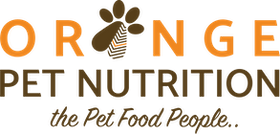You need to support their health with ‘clean foods’!
What are clean foods?
Clean foods refer to whole foods that:
- Undergo minimal processing
- Contain no artificial ingredients
- Have no preservatives or additives
- Provide natural nutrition

The Ultimate Clean Food Checklist
A comprehensive checklist of clean foods that you can feed your pets is one that includes different food groups and nutrients, as well as replenishing vitamins and minerals.
1. Protein
Protein is an essential nutrient for pets, as it plays a crucial role in keeping them strong and healthy.Benefits: It is necessary for the growth, maintenance, and repair of their body tissues. Protein also helps support a healthy immune system and provides energy.
Sources:
- Animal-based protein sources like turkey, lamb, chicken, beef, and fish are considered complete proteins as they contain all of the essential amino acids that pets need.
- Plant-based protein sources like tofu, soy, peas, and beans are also good options for pets, but they may need to be combined with other protein sources to ensure that pets are getting all of the essential amino acids they need.
- Lean meats, fish, eggs, and legumes are good sources of protein.
2. Vegetables
Vegetables are a great source of essential nutrients for pets, providing them with a variety of vitamins, minerals, and fiber. They can be cooked or pureed to ensure that they are easy for pets to digest.
Benefits: Including vegetables in your pet's diet can help support a healthy immune system, improve digestion, and maintain a healthy weight.
Sources:
- Some vegetables that are safe for pets include carrots, peas, green beans, broccoli, sweet potatoes, and pumpkin. However, it is important to note that not all vegetables are safe for pets.
3. Fruits

Fruits can be a sweet and nutritious addition to your pet's meal bowl. However, fruits are high in natural sugars and should be fed to pets in moderation, as excessive sugar consumption can lead to weight gain and other health problems. Before feeding fruits to your pet, make sure to remove any seeds or pits as they can be a choking hazard.
Benefits: Fruits are hydrating, and are great sources of vitamins, minerals, and fiber.
Sources:
- Some good fruit options for pets include apples, bananas, blueberries, strawberries, and watermelon.
4. Grains
Grains can be a valuable source of energy and nutrients for pets. However, not all grains are created equal and some may not be appropriate for all pets. Additionally, grains should not make up most of your pet's diet as they do not provide all the essential nutrients that pets need. It is important to choose high-quality, whole grains that are easy for pets to digest and incorporate them into a balanced diet alongside protein, vegetables, and fruits.
Benefits: They are a good source of carbohydrates and fiber.
Sources:
- Whole grains like brown rice, oats, barley, and quinoa are great.
5. Dairy Products
Dairy products can be a good source of protein and calcium for pets, but not all pets can tolerate them. Some pets may be lactose intolerant and feeding them dairy can cause digestive upset and diarrhea.
For tolerant pets, it is important to choose low-fat or non-fat dairy products and to feed them in moderation as they can be high in calories and fat.
Benefits: They can provide your pet with protein, calcium, and other nutrients.
Sources:
- Good Options like plain yogurt, cottage cheese, and cheese can be a healthy and delicious treat.
6. Supplements
Supplements can be a useful addition to your pet's diet, but they should only be used under the guidance of a veterinarian. Some pets may have specific health conditions that require additional nutrients or supplements to support their health.
Benefits: Support joint health and improve health conditions through vitamins and minerals.
Sources:
- Fish oil, glucosamine, and probiotics can be beneficial for some pets

It is important to choose high-quality supplements that are specifically designed for pets, as human supplements may not be appropriate or safe for pets to consume. Additionally, following the recommended dosages and avoiding giving pets multiple supplements without consulting with a veterinarian first is important.
We hope that you use this complete checklist of clean foods for pets to provide your furry friend with a well-rounded and nutritious diet! However, always remember to consult with your veterinarian before making any significant changes to your pet's diet.




